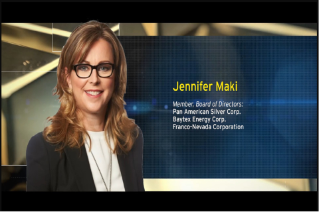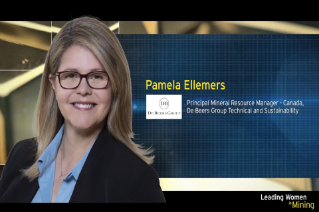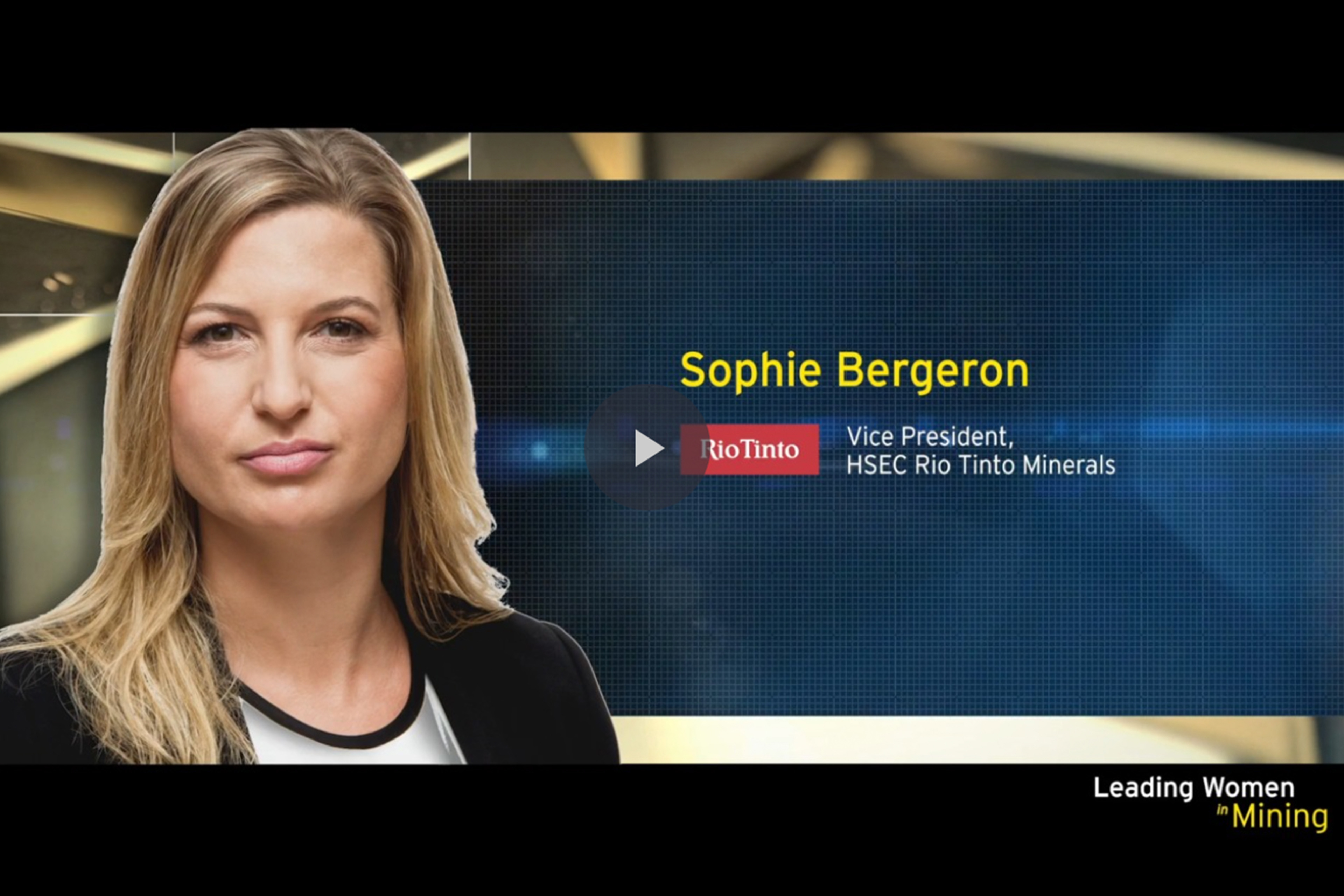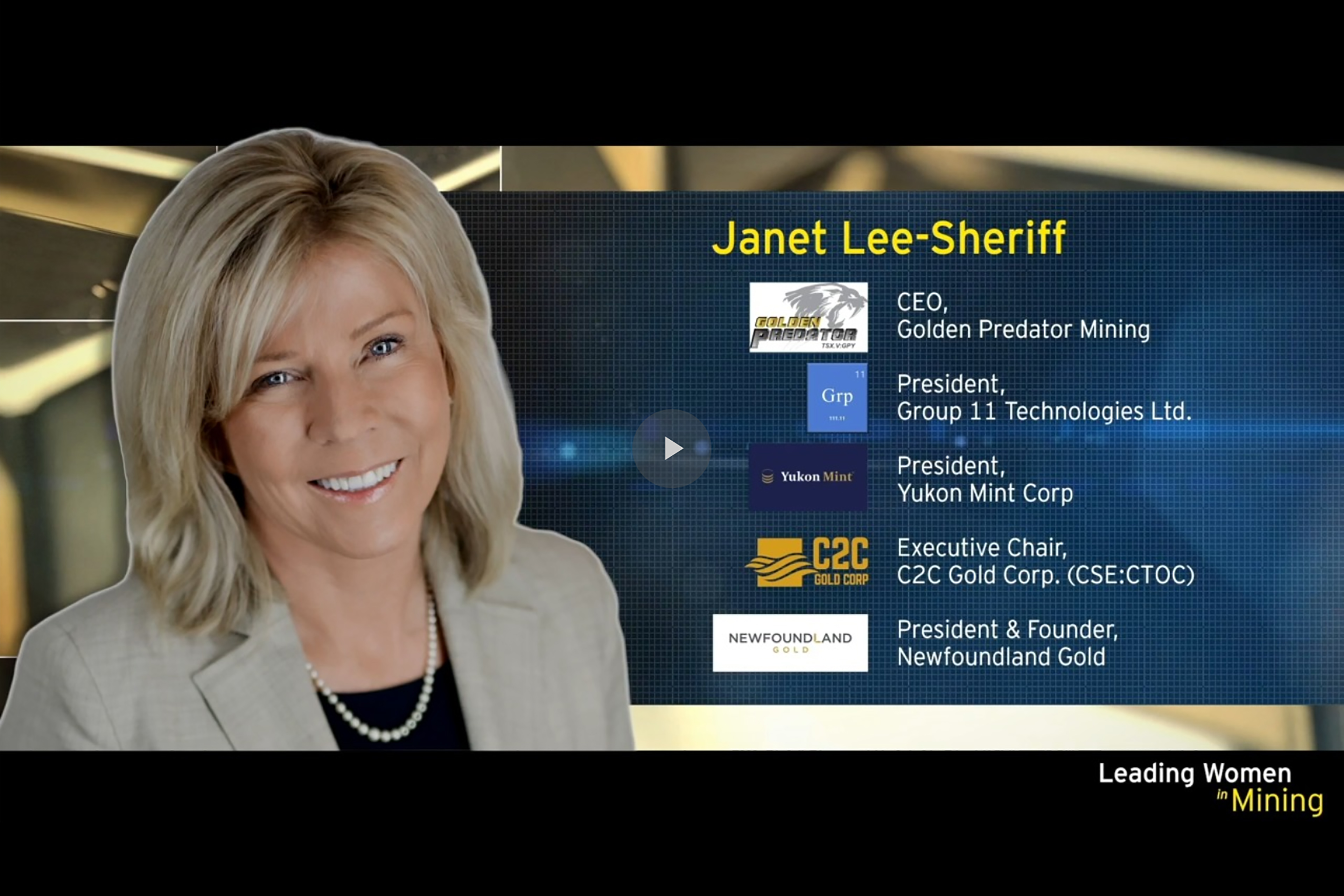EY refers to the global organization, and may refer to one or more, of the member firms of Ernst & Young Global Limited, each of which is a separate legal entity. Ernst & Young Global Limited, a UK company limited by guarantee, does not provide services to clients.
Return to Leading Women in Mining homepage
Watch Wendy King, Senior Vice President – Risk, ESG and General Counsel, Capstone Copper discuss lessons learned, career success factors, and the role of women in driving innovation and enabling success in the sector.
Leading Women in Mining is a video series showcasing female role models in the sector who, by sharing their career journeys and lessons learned, are aiming to inspire and advance tomorrow’s women leaders in mining.
Wendy King, Senior Vice President – Risk, ESG and General Counsel, Capstone Copper.
Tina Berthaudin: Hi! My name's Tina Berthaudin. I'm an associate partner at EY here in Vancouver in the Transfer Pricing group. It's my great pleasure today to introduce to our audience Wendy King. In addition to her position as Senior Vice President, Risk, ESG and General Counsel with Capstone Copper in Vancouver, she’s a Certified Director, she holds two Masters’ and has served on many executive boards and committees.
She's also the proud mother of three children. Wendy has always been an inspiration to me as she has many other women in industry and in business in general. With that said, I want to welcome my good friend and colleague, Wendy King.
Wendy King: Thank you, Tina.
Tina Berthaudin: So, Wendy, a career path is never direct. Can you talk about some of the key success factors that helped you achieve your goals?
Wendy King: Yes, I think hard work, investing in yourself through continual learning, and supporting others to succeed are very important factors. But one of the strongest factors of success in my career has been the willingness to take on new challenges and operate outside of my comfort zone.
And that really takes believing in your ability to take on the challenge and just figure it out even if you haven't had a lot of experience in the area, but you know you have the skills and drive to accomplish it.
Tina Berthaudin: Yes, I mean, really the comfort zone is a big one. And knowing when and how to take that career risk is a really big learning opportunity for many. So, I mean, maybe let's get into some of that and the three lessons that you've learned along the way.
Wendy King: Tina, the first lesson would probably be to know your value and communicate it. And that's something that I think women have sometimes struggled with. Men as well. And I'm sure you've read a lot about the imposter syndrome.
The second is the importance of mentorship. So, seek out mentors, male or female, throughout your career and ensure that you give time to mentor others. I've learned as much from mentees as I have from being mentored.
The third lesson would be the value of risk-taking and failure in your career. Don't be deterred if things don't work out as you expected. Just make sure you learn from the experience, shake it off and move forward. It really builds resilience. It's an opportunity to become stronger.
It shouldn't be seen as a negative. And just never give it up when things get hard, just find a new way. One thing I always make sure my team remembers is there's always a solution to every problem, and working as a team, we can find it. That encourages people to bring problems to you early and not be afraid if they've made a mistake.
Yeah, it's okay. We all do.
Tina Berthaudin: Yeah. So, I mean, Wendy, in terms of knowing your value, in communicating it, you mentioned the imposter syndrome. Can you talk a little bit more about that and how one can work through it and the lessons that you've learned perhaps?
Wendy King: Absolutely. So, women are more likely to have the imposter syndrome. Men do experience it as well. And it's just the belief that you're not deserving of the role or the position that you're in, that you somehow achieved it through luck and that you'll be found out or recognized for not being competent in the role. And in reality, these people are often very qualified or even overqualified, and it's just the perception of fear that they have.
And so really understanding and recognizing that and knowing your skills and the value that you bring and ensuring that you communicate it in the way that you speak about yourself and the way that you communicate your ideas is very important. Because otherwise others may perceive you as you perceive yourself when it's not reality. And women sometimes tend to be more self-deprecating in the comments about themselves or less confident in the way they communicate their ideas. And as a result, they're less likely to take on new challenges for the fear of failure that is really not warranted.
Another example of where women don't necessarily advocate for themselves as much as men is when they're negotiating and managing their remuneration. And understanding this can go a long way to closing the gender gap in pay.
Just always remember, your worst enemy as a woman is underestimating yourself or buying into the misogyny that we've all encountered. Confidence is absolutely key and confidence is what makes it easier to admit to mistakes. They don't reflect on your worth. They reflect on your willingness to try new things and take on those challenges outside of your comfort zone.
Tina Berthaudin: Oh yes, Wendy! There are lots of things here that we can absolutely all relate to. Thanks so much for sharing your thoughts. In the lessons you've learned, you mentioned that you've been the recipient of some great mentors in your past. Maybe you could talk a little bit more about mentorship and how you do that.
Wendy King: Yeah, well, I think everyone, no matter what level they are at in their career, can benefit from a mentor. And I've been lucky to have a few great mentors in my career. And their constructive feedback and support made a lasting impact on my career. It's not just the providing of advice. It's the championing your mentee for opportunities.
It's providing that constructive feedback that’s sometimes hard to hear. But if it's done in a very empathetic way and the intent is to help them grow, you can help develop or be developed, if you're a mentee, by being open to that feedback. And in turn, I've also mentored others, and I found that I've learned as much from being a mentor as from being a mentee.
I've learned from those I’m mentoring, and I've also learned more about myself as a leader through those opportunities to mentorship. So, we all get busy at times, especially when you get to a point in your life where you are balancing family and work and a lot of demands. But taking that time out to be a mentor to others is invaluable as well.
Tina Berthaudin: So, Wendy, what's the best piece of advice you've ever received to help you with your career? I mean, is there even such a thing?
Wendy King: I think the best piece I ever received was to really know your strengths and choose opportunities that fit with those strengths. So that's again back to the value of risk-taking in your career. But the key is really figuring out those strengths and skills. And some of my most rewarding experiences have been those times when I've been taking on these new challenges and they came with a lot of hard work and sometimes more stress than I wanted. But the result was exponential growth. And so, just say yes to opportunities and know that you can figure it out. You just need the confidence to know you have the talent and intelligence to figure it out and self-awareness to know when to ask for help. It also really helps to have a lot of support around you. So this is where that team of strong, smart, talented people who work well together is so important.
And there'll be times when you or someone on your team or the team as a whole fails at something, especially when there's a lot of risk-taking involved. Everyone does and it's about staying positive, shaking it off, moving forward. But most importantly, it's learning from it. And I often say to my team: we can figure anything out, so, if something we are working on goes wrong, there's always a solution, we’ll figure it out together, pull in the different skillsets, and we always end up with a great result. I always remember, you're only as successful as your team and you should care as much about their growth opportunities to achieve their goals as your own.
Tina Berthaudin: That's great. Thank you, Wendy. I love this. Don't overthink things. Don't catastrophize things. Take the energy, fix it up and move it forward. I mean, I think this is key because where leaders encourage innovation and a way of moving forward, that encourages that failure, success follows. And we know that without failure there cannot be success.
So perhaps this is a good segue where we can turn to some of the challenges that women face in mining. I'd love to hear your perspective on this, Wendy.
Wendy King: I agree, Tina. Women are clearly underrepresented in mining, and particularly at the C-suite level, but also throughout their organizations. And diversity has clearly been shown to have benefits for financial and operational performance and promotes creativity and strategic resilience. We've seen that over and over, and companies and stakeholders really understand that now. And it's a matter of encouraging more women to enter the industry.
And to do that, we need to create an inclusive culture that retains them. Women report that they're attracted to mining for a variety of reasons, including the potential for higher compensation compared to other industries. But they also report leaving mining because they believe there are less opportunities for advancement than their male colleagues. So, they become somewhat disillusioned at times. And it's different in each jurisdiction, but in some areas where we operate, the wages are significantly lower and result in a much lower standard of living. And so the opportunity for a female, particularly one who wants to support her family and change their standard of living, the opportunity to have a higher-paying role in mining is really important to the future.
Tina Berthaudin: And Wendy, how is Capstone challenging that status quo for women.
Wendy King: Well, as part of our ESG strategy, diversity and inclusion is one of our key pillars. It's very important within our organization. We created a Diversity and Inclusion Committee. We've been working on setting baselines and really trying to understand any barriers to attracting more women and how to retain and support women in advancing within the organization. We're doing some of that through a number of apprenticeship programs that we have at some of our sites.
But we're also reaching out and speaking with women we have throughout the organization and in different countries at all levels and taking the time to understand their experiences and any challenges they may have or barriers they perceive to moving forward and advancing within the organization. And it's helping us to develop the strategies around our goals and targets that we will eventually set in this area.
Tina Berthaudin: A little off script here, Wendy, but in terms of Capstone’s opportunities for women, as they advance in their careers, you mentioned that you've got some programs that you've started to work on. Do you have a timeline as to when your plans will be developed further? Are we looking sort of like three to five years out or is it something much larger than that?
Wendy King: The plan is for a much shorter timeframe in terms of establishing the initiatives. But as I said it does take time to really understand the environment and what some of those challenges are and what initiatives are going to be the most successful in the long term of attracting and retaining women. And it may be different depending on the jurisdiction and the location.
At some of our mine sites, we had fly in, fly out. So, you're living at the site for a week or two weeks at a time. And so those challenges and environments and the initiatives that are required may be very different than other locations. And the same with corporate and corporate roles. We want to take the time to really understand the best way to create that or ensure we have a strong, inclusive culture.
Because attracting women, if you don't have that inclusive culture, you're not necessarily going to retain them. But as I said, the initiatives we're starting and have already started are really about getting a sense of what will be the most impactful is what we're focused on right now.
Tina Berthaudin: My last question for you, Wendy, is around innovation. And I mean, obviously ESG is an important aspect of working in mining. What role do you think women have in relation to innovation and enabling its success?
Wendy King: That's a great question. This is a great opportunity to attract more women to mining. Women tend to be more likely to be qualified in fields such as environmental sciences, natural physical sciences like geology, environmental engineering and natural conservation, such as biodiversity, which is one of our pillars for ESG and particularly strong also in community relations. So, these areas are extremely important for continuing social licences to operate for mining companies.
It's interesting, too, because studies have shown that women tend to be better operators of heavy equipment. They operate more safely and you end up with less injuries and less damage to the equipment. It really is a benefit to all to have more women attracted to those roles.
Tina Berthaudin: I know I said that that was the last question before, but I'm curious, you know, if you had to give some advice to younger Wendy self, what advice would you give to her.
Wendy King: Be confident in your skillset and your ability. Know your value early on and take on those challenges. Always look to do the right thing. There are times you'll be tested in your career and always live by that. Every day ensure that you're giving value to your organization and always work well with others. I think one of the keys to success is having that empathy in not only leadership, but also in how you interact with others.
Tina Berthaudin: Wendy, thank you so much for sharing your perspectives and insights today. It's really been a pleasure having you on our series. Thank you very much.
Wendy King: Thank you, Tina.
Leading Women in Mining Interviews
Leading Women in Mining Episode 4 – Jennifer Maki
Watch Jennifer Maki, Member Board of Directors at Pan American Silver Corp., Baytex Energy Corp., and Franco-Nevada Corporation discuss the opportunities and lessons learned throughout her career.
Leading Women in Mining Episode 3 – Pamela Ellemers
Watch the interview with the inspirational Pamela Ellemers, principal Mineral Resource Manager – Canada, De Beers Group Technical and Sustainability.
Leading Women in Mining Episode 2 – Sophie Bergeron
Watch our first interview with Sophie Bergeron, Vice President, HSEC Rio Tinto Minerals, and hear her inspiring story as a leader in the mining industry.
Leading Women in Mining Episode 1 – Janet Lee-Sheriff
Watch our first interview with Janet Lee-Sheriff, Executive Chair, C2C Gold Corp. and hear her inspiring story in the mining industry.



